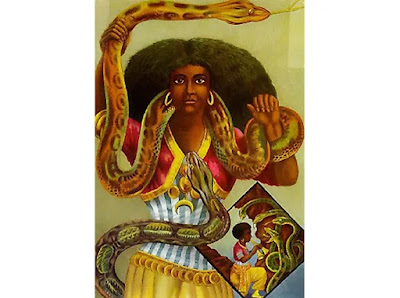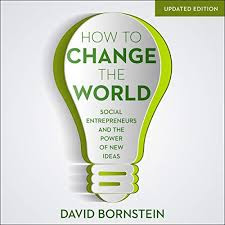Michael & Stanley - Thursday
Finally, we’ve reached September 1. Today, A Deadly Covenant is out in the world!
There’s quite a story behind this one. Stan had the idea of a Bushman skeleton being unearthed (by accident) and Kubu investigating, and more skeletons turning up, not necessarily Bushman skeletons. It seemed an intriguing premise.
 |
| Drotsky's cabins near Shakawe where Kubu and Ian stay during the investigation |
In terms of location, we’d been keen for a long time to set something in northwest Botswana. Shakawe is the town where the Kavango River from Angola flows from Namibia into Botswana. We experienced “bird overload” there once—so many water birds crowding the drying pools to get the trapped fish that we didn’t know where to look first.
That was about what we knew when we started writing the book. We’ve always been “pantsers”— writing by the seats of our pants and wondering (sometimes with fear, occasionally with terror) where it was all going to go.
So Kubu, still a new detective in the Botswana CID, but with the success of solving the diamond heist case of Facets of Death under his belt, was sent
out to Shakawe to help the pathologist, Ian Macgregor, get to the bottom of the
mysterious skeleton. They get more than they bargained for. Eventually Ian
finds nine skeletons, all of Bushmen, some of women and children, and all have
been murdered—shot or bludgeoned to death. A Bushman massacre. And no one they
ask in Shakawe is willing to admit to any knowledge of what happened.
At that point Selelo, a Bushman, appears from nowhere at the site of the massacre, dances to his ancestors in the sky, and then collapses. The next day he disappears. Next, an elderly man is murdered at his home. The local police think it’s a robbery gone wrong and blame the mysterious Bushman, but Kubu thinks otherwise. So does a strange woman who believes that a powerful river spirit, Mami Wata, is angry about the water project designed to “steal” her water.
 |
| Mami Wata |
As his time away from Gaborone drags on, Kubu is missing Joy
and agonizing over where their relationship is going. We love this quote from
Lavender Magazine about A Deadly Covenant that encapsulates how the young Kubu
feels:
“Kubu, despite personal insecurities concerning love and
social skills, sets his keen mind to work, absorbs, solves – gains confidence
in handling police procedure, single-malt whiskey, and love.”
Kubu’s boss, Assistant Superintendent Jacob Mabaku is sent
to join Kubu and Ian amid rumors of corruption around the water project and
the build-up of international anger over the Bushman killings. Then another death occurs…
At that point we knew more or less what was happening and had a pile of cut scenes to show where the dead ends had occurred. But the conclusion itself seemed out of our grasp. What would happen to Selelo? How was the village chief, Kgosi Rantao, involved if he was involved? Who was lying and who (if anyone) was telling the truth? And how were Kubu, Ian, and Mabaku going to make head or tail of all this?
Well, eventually they did. We breathed a sigh of relief.
We hope you enjoy A Deadly
Covenant and that, if you can, you’ll come to one of the events to hear
more about the book and about Bushman culture.
Here's the September schedule:
Wednesday, 7. 4:30 – 5:30 pm
Totally Criminal Cocktail Hour at Valley Bookstore
The Zephyr Theatre, 601 N Main St, Stillwater, MN 55082
Call 651.430.3385 for reservations.
If you're attending Bouchercon, don't miss Stan's dream panel with Alexander McCall Smith, Jo Nesbo, and Caro Ramsay!
Friday, 9, 1:45 – 2:30 pm
BOUCHERCON Panel:
The Mystery of Multiple Points of View and Multiple Timelines (Writers use dual perspectives/multiple narrators and alternating timelines to tell their stories.)
Saturday, 10, 11:30 -12:15 pm
BOUCHERCON Panel:
Under the Sun or Below Zero (You’ve heard of “setting as a character.” Well … what about the weather? These authors’ works represent a dichotomy of climates where rising temps or bone-chilling cold are just as effective as any villain.)
Alexander McCall Smith; Stan Trollip (Michael Stanley); Catriona McPherson; Jo Nesbø ; Matthew Goldman (Moderator); Caro Ramsay
If you're attending the International Agatha Christie Festival, join us for Agatha in Africa.
Thursday, 15, 12:30 – 1:00 pm (UK time)
Virtual event at the International Agatha Christie Festival
Agatha in Africa
Michael, Stanley and Zimbabwe author Bryony Rheam discuss Agatha Christie’s trip to South Africa and Southern Rhodesia and its connection with her mystery thriller The Man in the Brown Suit.
Saturday 17, 1:00 pm
Nokomis Library event
5100 S 34th Ave, Minneapolis, MN 55417 Phone: 612-543-6800
Wednesday 21, 6:00 pm
Thomas St. Angelo Public Library of Cumberland event
1305 2nd Ave, Cumberland, WI 54829. Phone: 715-822-2767
Thursday 22, 6:30 pm
Spooner Library event
421 High St, Spooner, WI 54801 Phone. 715-635-2792
Saturday 24, 1200
The Bookstore at Fitger’s
600 East Superior Street, Duluth MN 55802
Tuesday, 27, 6:00 pm (In person and virtual)
Official launch of A Deadly Covenant at Once Upon A Crime
604 W. 26th Street, Minneapolis, MN 5540 Phone: 612.870.3785
Email: onceuponacrimebooks@gmail.com
With Mary Ann Grossman






















































